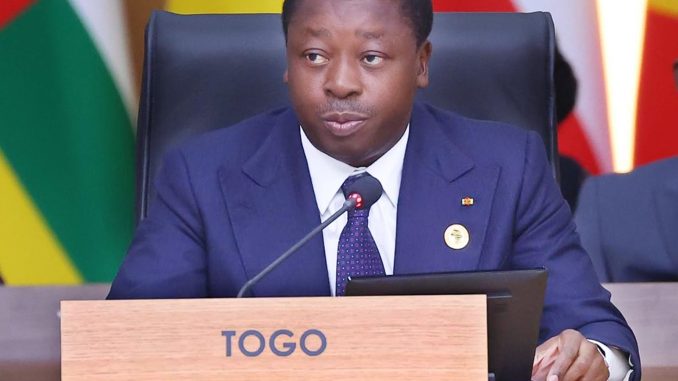Togo: A flourishing economy under the impetus of H.E. Faure Gnassingbé’s strategic reforms

Under the forward-thinking leadership of President Faure Gnassingbé, Togo is experiencing an era of remarkable economic growth. This achievement stems from careful management and bold reforms that have revitalized key sectors such as infrastructure, agriculture, and industrialization.
By diversifying its economy and boosting investments, Togo has solidified its position as one of the most promising economies in West Africa.
A major driver of this economic transformation is the country’s infrastructure development.
Through strategic planning and significant investments, the Togolese government has launched ambitious projects to modernize its transportation networks, including roads, ports, and airports.
The Port of Lomé, now regarded as one of the most competitive in the region, plays a pivotal role in this vision.
With enhanced capacity to handle increasing volumes of goods, the port has become a crucial hub for both regional and international trade.
This logistical expansion not only boosts Togo’s export capabilities but also attracts foreign investors drawn by the country’s strategic location, further cementing its status as a regional trading powerhouse.
In parallel, agriculture, a traditional cornerstone of Togo’s economy, is undergoing a revitalization thanks to increased governmental support.
The sector has seen the implementation of targeted modernization programs, such as the adoption of innovative farming techniques and the provision of modern equipment to small-scale farmers.
These initiatives have led to higher crop yields and a more diversified agricultural output.
As a result, Togo is increasingly becoming a key player in the export of agricultural products like cotton, coffee, and cocoa.
This agricultural success not only strengthens food security but also boosts the country’s trade balance and brings in vital foreign currency.
Industrialization is another crucial pillar of Togo’s economic advancement. Recognizing the need to move beyond agriculture, President Gnassingbé has championed a proactive industrialization policy.
Special economic zones have been established, offering tax breaks and logistical advantages to attract foreign investors.
These incentives have spurred the growth of industrial projects in areas like raw material processing and the production of manufactured goods.
This industrial expansion is not only creating jobs for locals but is also accelerating Togo’s transition towards a more resilient economy, capable of withstanding external economic shocks.
The progress seen in these sectors reflects a long-term vision for Togo’s development.
Beyond the impressive economic indicators, a new chapter is unfolding for the country—one of inclusive and sustainable growth.
With a leadership style that balances caution with boldness, Faure Gnassingbé is positioning Togo as a model of economic success in West Africa, paving the way for prosperity that benefits all citizens.
Chantal TAWELESSI











